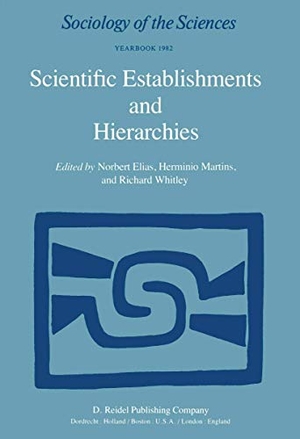Für statistische Zwecke und um bestmögliche Funktionalität zu bieten, speichert diese Website Cookies auf Ihrem Gerät. Das Speichern von Cookies kann in den Browser-Einstellungen deaktiviert werden. Wenn Sie die Website weiter nutzen, stimmen Sie der Verwendung von Cookies zu.
Cookie akzeptieren
Scientific Establishments and Hierarchies
- Springer Netherlands
- 1982
- Taschenbuch
- 388 Seiten
- ISBN 9789027713230
In recent years sociologists of sciences have become more interested in scien tific elites, in the way they direct and control the development of sciences and, beyond that, in which the organization of research facilities and resources generally affects research strategies and goals. In this volume we focus on scientific establishments and hierarchies as a means of bringing aspects of these concerns together in their historical and comparative contexts. These terms draw attention to the fact that much scientific work has been pursued within a highly specific organizational setting, that of universities and aca demic research institutes. The effects of this organizational setting as well as
Mehr
Weniger
zzgl. Versand
in Kürze